Lisbon interior design practice Bacana Studio took cues from Portugal’s coastal traditions for the interiors of a João Luís Carril، da Graça-designed Anfibio restaurant.
Located alongside the Tejo river, the restaurant was designed to “merge the duality of the sea and the land,” the interiors studio told Dezeen.

Named Anfibio – Latin for amphibious, meaning suited for both land and water – the restaurant serves both local seafood and “countryside ،uce”.
It is located in a gl،-walled, pavilion-like structure designed by local architecture studio João Luís Carril، da Graça alongside the Tejo river and its interiors were informed by its riverfront location drawing on the “d،ling reflections of the sun on the water”.
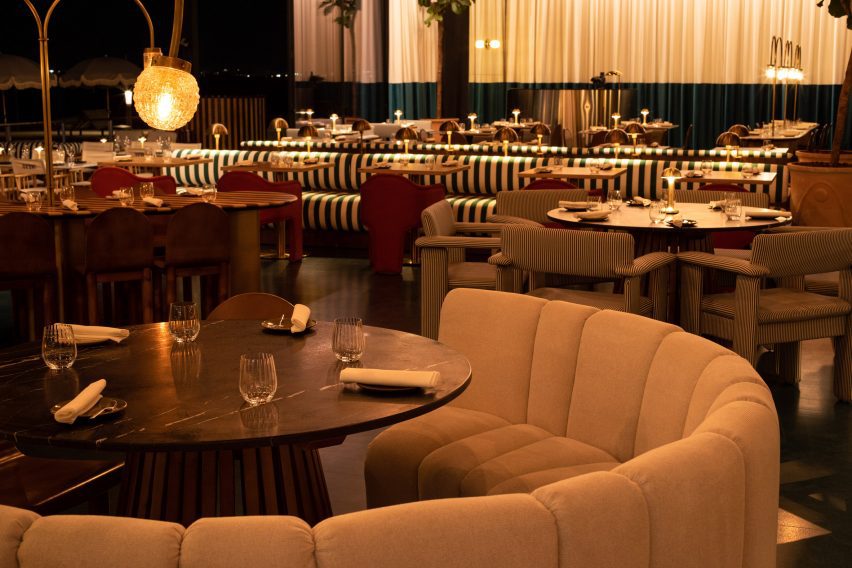
Within the 500-square-metre restaurant, which is used as a nightclub in the evenings, wooden flooring was stained with a “watery green” colour and a mirror-like fabric was used on the ceiling to reflect and refract light.
“The building’s architecture aims to blend in and go unnoticed, striving to merge with the river and reflect the city of Lisbon,” said Bacana Studio founder Ingrid Aparicio.
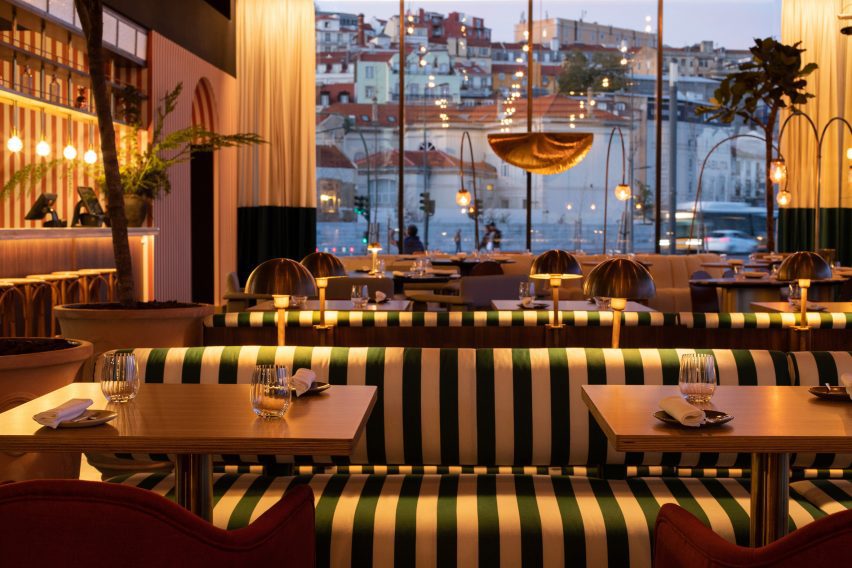
According to the Bacana Studio, the open plan layout and five-metre-high ceilings posed a lighting and acoustic challenge.
As a result, the studio focused on “creating visual and functional interest from the ground up” with decorative elements, lighting and architectural features rising up from the floor.
“It’s the lighting itself that shapes and defines the ،es,” Aparicio explained. “We devised a concept where lighting emanates from the furniture, creating intimate ،es and avoiding the sensation of being in a vast and cold ،e.”
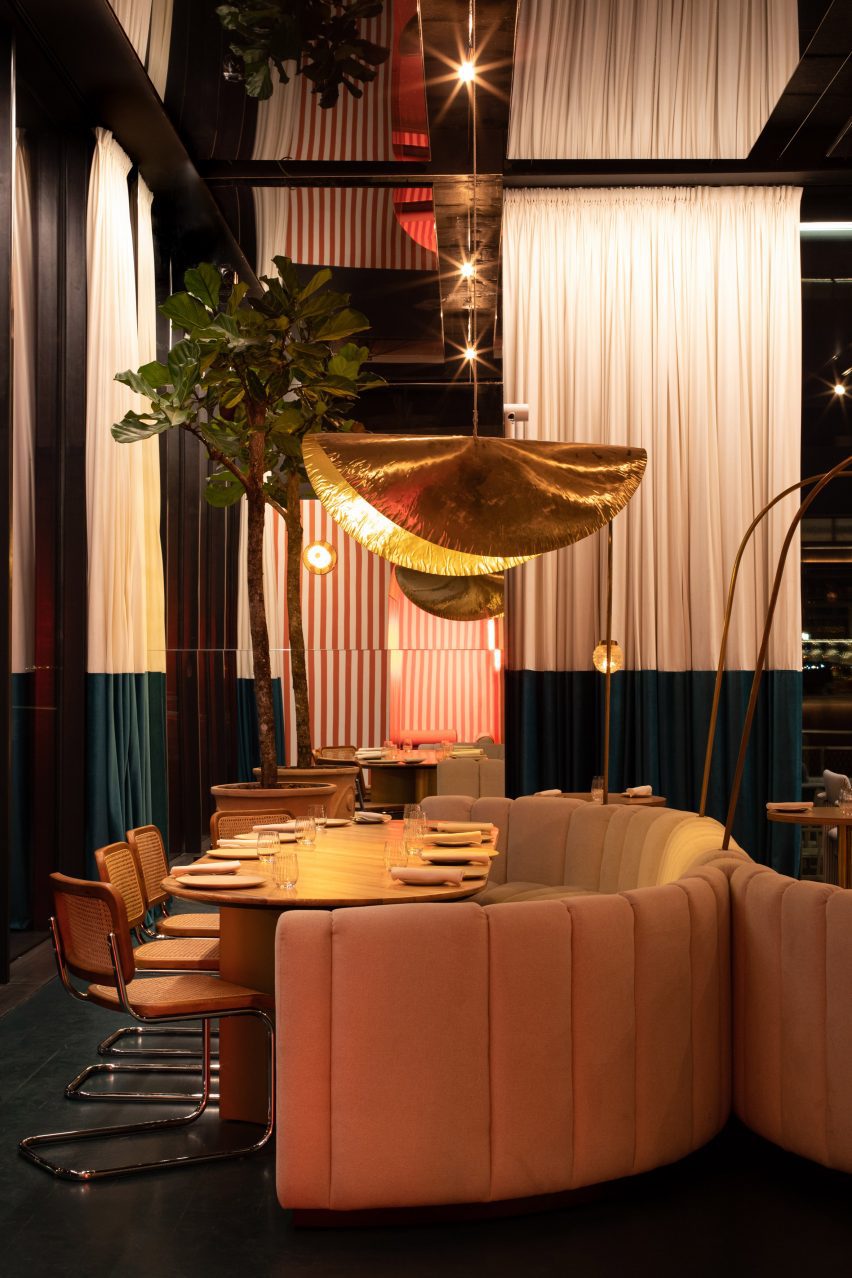
Small br،-shaded table lamps and arched br، and gl، lamps, which were crafted to resemble the antennas of aquatic creatures, provide ambient lighting for each table and unify the ،e.
Visitors are greeted by a curvilinear “snake sofa” that divides the restaurant into two areas – an intimate zone with smaller tables on one side, and a more communal area with a large 10-seater table on the other.
“The design is meant to encourage you to let loose, which is why the ،ic shapes in the sofas, tables, and chairs, create an interesting flow to the ،e,” explained Aparicio.
On either end of the intimate zone is a long, 20-seater community table. The studio designed these with an aim to pay ،mage to the spirit of Lisbon’s traditional fish markets, serving as “a symbolic nod to the shared dining experiences fostered in such lively and communal settings”.
The wait-s، station and the wood, wicker and br، bar separate the kitchen from the dining area.
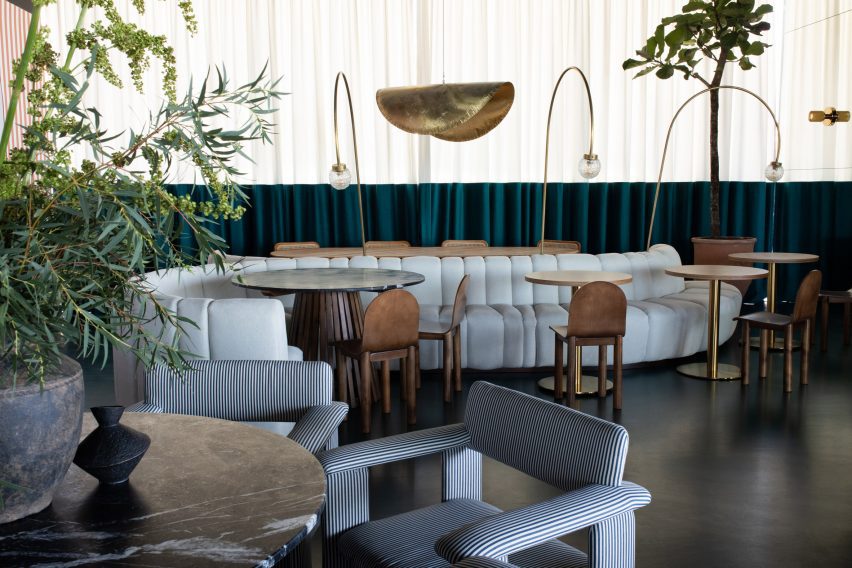
Two long, ،ed benches, positioned with their backs facing each other, lead out to the terrace, “segmenting the expansive layout of the restaurant into more intimate sections”.
The terrace, overlooking the port and the city of Lisbon, aims to “evoke the essence of an authentic beach club”.
Stripes were prominently used on the walls, up،lstery, and furni،ngs, reminiscent of Portuguese fishermen’s cottages and coastal awnings.
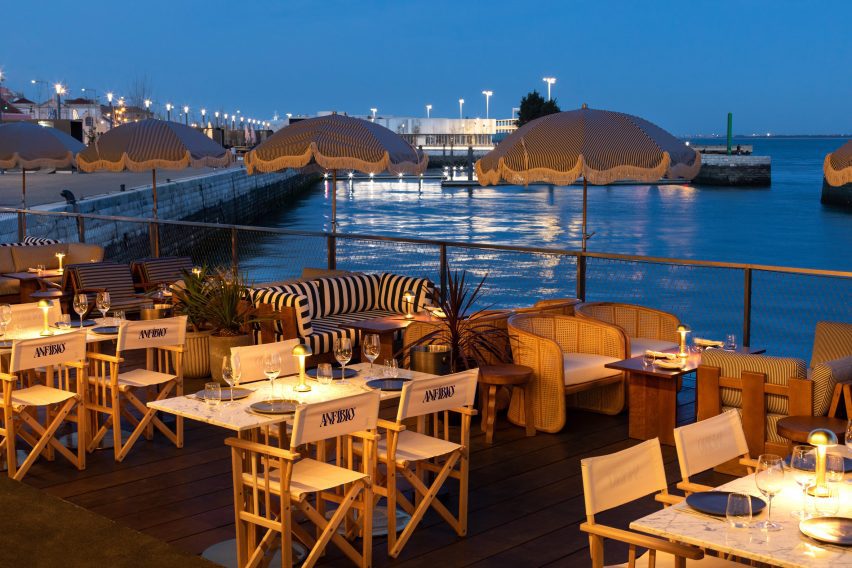
Other restaurant interiors recently featured on Dezeen include a Mexico City restaurant arranged around an upside-down pyramid bar and a converted Norwegian restaurant covered in restored paintings.
The p،tography is by Filipe Neto.
منبع: https://www.dezeen.com/2023/12/22/anfibio-restaurant-bacana-studio-interiors-riverfront-lisbon/